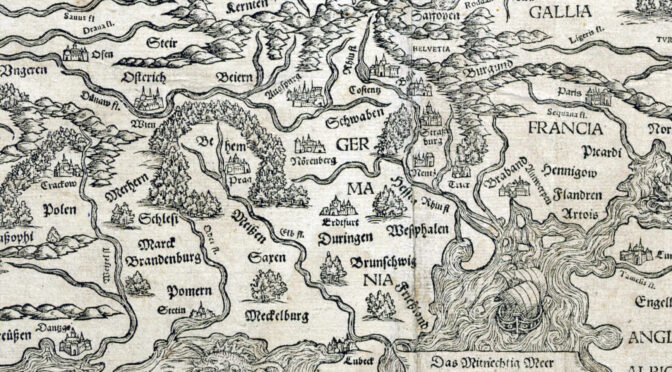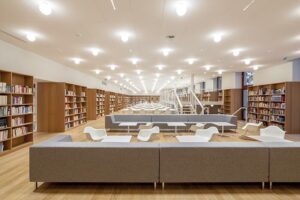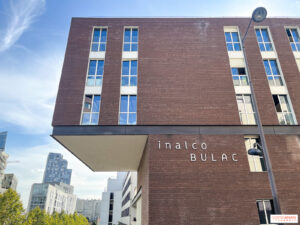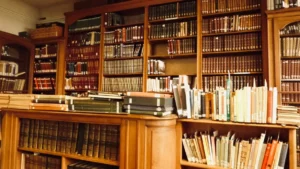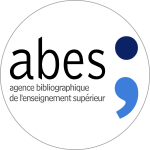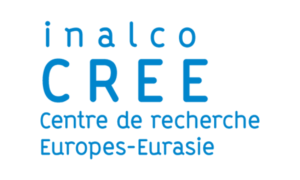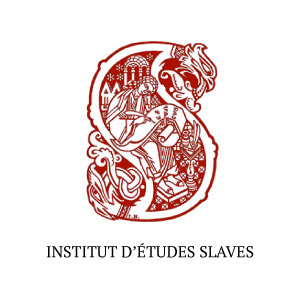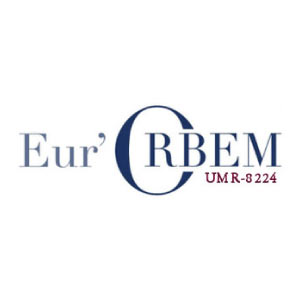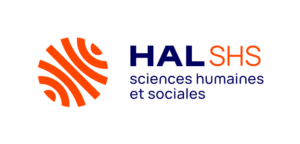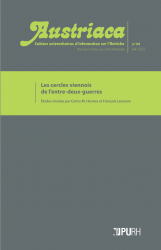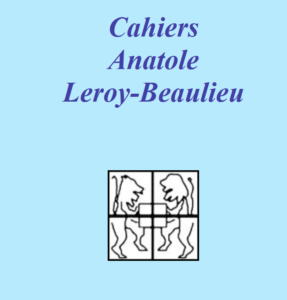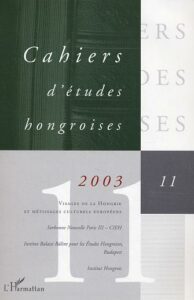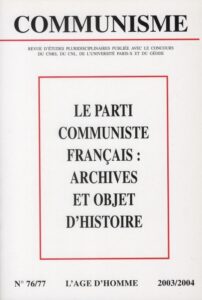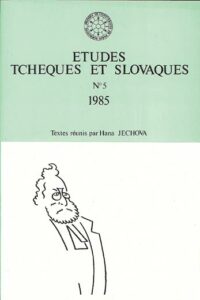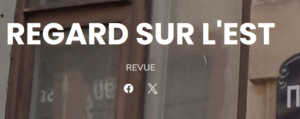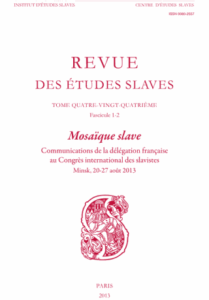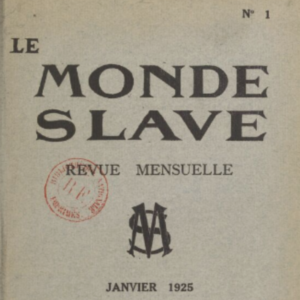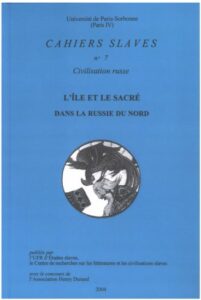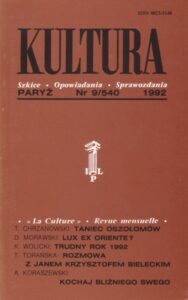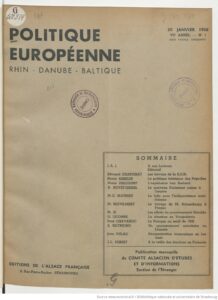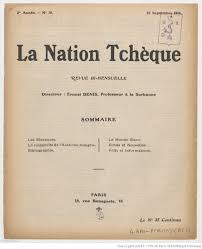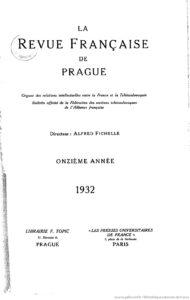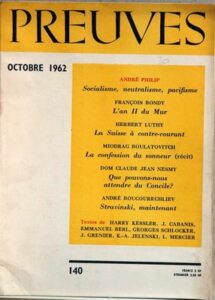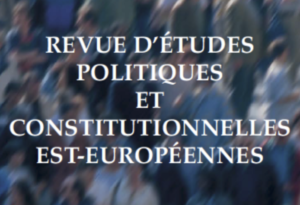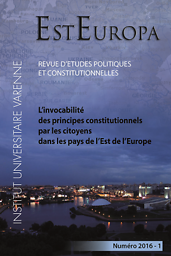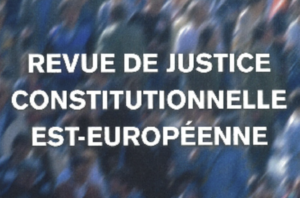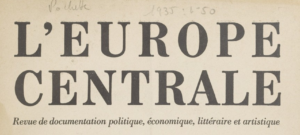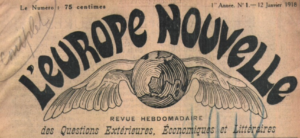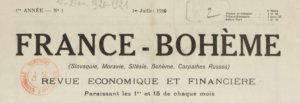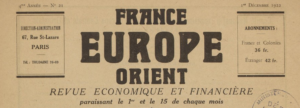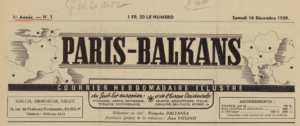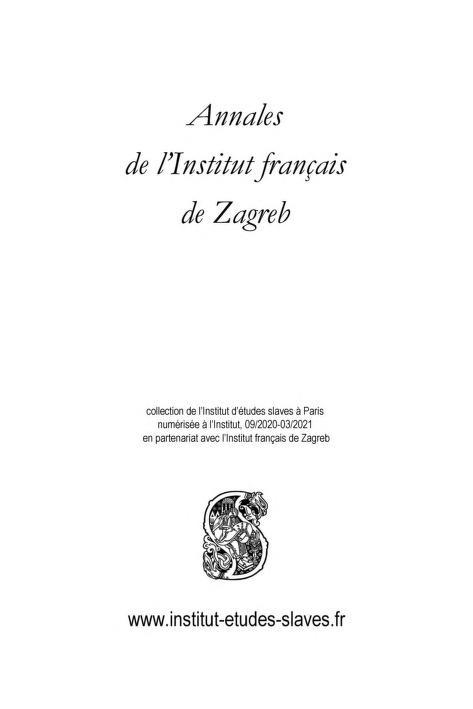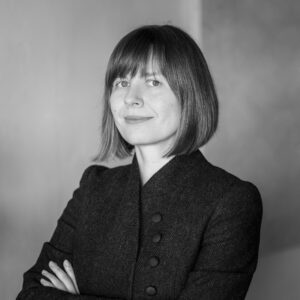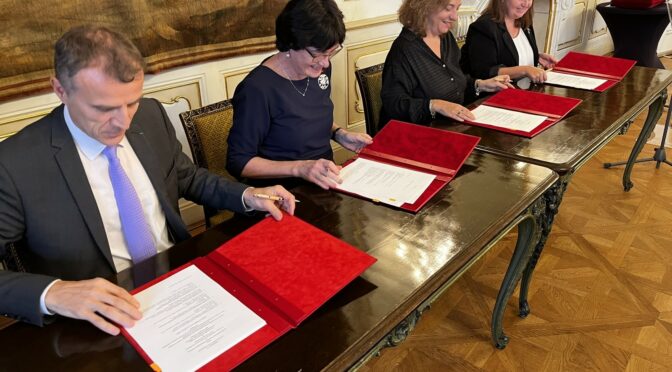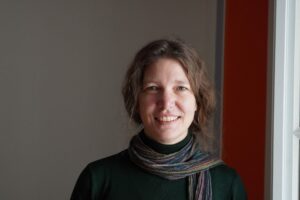 Kateřina Čapková, PhD. is an Asistent Professor at the Department of Middle Eastern Studies, Faculty of Arts, Charles University. Her research and teaching focus on modern Jewish history in Europe, the history of Roma and Sinti, and refugee studies. Her monograph Czechs, Germans, Jews? won the Outstanding Academic Title Award from Choice magazine. Together with Hillel Kieval, she co-edited Prague and Beyond, a history of Jews in the Bohemian lands from the early modern period to the present, published also in German, Hebrew, and Czech. In 2016, Čapková initiated the establishment of the Prague Forum for Romani Histories at the Institute of Contemporary History, which she has directed ever since. Since January 2025, the Prague Forum for Romani Histories has become one of the research centers of the Faculty of Arts at Charles University. One of the on-going projects Čapková heads is www.romatestimonies.com, the world’s first systematic database of Roma and Sinti testimonies about the Second World War. In 2024, Čapková was awarded the prestigious Reimar Lüst Prize by the Humboldt Foundation and the Fritz Thyssen Foundation.
Kateřina Čapková, PhD. is an Asistent Professor at the Department of Middle Eastern Studies, Faculty of Arts, Charles University. Her research and teaching focus on modern Jewish history in Europe, the history of Roma and Sinti, and refugee studies. Her monograph Czechs, Germans, Jews? won the Outstanding Academic Title Award from Choice magazine. Together with Hillel Kieval, she co-edited Prague and Beyond, a history of Jews in the Bohemian lands from the early modern period to the present, published also in German, Hebrew, and Czech. In 2016, Čapková initiated the establishment of the Prague Forum for Romani Histories at the Institute of Contemporary History, which she has directed ever since. Since January 2025, the Prague Forum for Romani Histories has become one of the research centers of the Faculty of Arts at Charles University. One of the on-going projects Čapková heads is www.romatestimonies.com, the world’s first systematic database of Roma and Sinti testimonies about the Second World War. In 2024, Čapková was awarded the prestigious Reimar Lüst Prize by the Humboldt Foundation and the Fritz Thyssen Foundation.
Education
- 1997 – 2003: PhD in Czech History, Faculty of Arts, Charles University
III/2000 – VII/2000: INALCO Paris
IX/1998 – VI/1999: Oxford University, OSI/FCO Chevening Scholarship - 1991 – 1997: Mgr. (corresponds with MA) in History and German Studies, Faculty of Arts, Charles University
IX/1994 – VII/1995: Universität Wien, ÖAD
III/1994 – VII/1994: Universität Münster, DAAD
Research Stays Abroad
- X/2024 – III/2025: Wiener Wiesenthal Institut für Holocaust-Studien (Senior Research Fellow)
- X – XII/2021: Zentrum für Zeithistorische Forschung, Potsdam (Humboldt Scholarship)
- IX/2015 – VI/2016: University of Chicago (Visiting Scholar)
- IX/2010 – VIII/2011, I – VI/2013: Freie Universität, Berlin (Humboldt Scholarship for Experienced Researchers)
- I – VI/2005: Universität Basel (Bundesstipendium der Schweizerischen Eidgenossenschaft)
Awards
- Reimar Lüst Prize for 2024 awarded by the Alexander von Humboldt Foundation and the Fritz Thyssen Foundation
- Otokar Fischer Prize for 2022 awarded by Adalbert Stifter Verein and Institut pro studium literatury for Zwischen Prag und Nikolsburg (together with Hillel Kieval)
- Otto Wichterle Prize for 2013 awarded by the Czech Academy of Sciences
- Outstanding Academic Title for 2012 awarded by Choice. Current Reviews for Academic Libraries for Czechs, Germans, Jews? National Identity and the Jews of Bohemia
- Margarita Pazi Prize for Research of Bohemian Jewry awarded by Margareta Pazi Foundation, Tel Aviv, 2005-2006
Research Projects (selection)
- 2024 – 2028: OP JAK, Faculty of Arts, Charles University, member of the research team
Title: Beyond security: The role of conflict in building resilience (CoRe) - I/2024 – VI/2025: Erinnerung, Verantwortung, Zukunft, Faculty of Arts, Charles University, PI
Title: Zeugenaussagen von Roma und Sinti im Rahmen ihrer Suche nach Wiedergutmachung - 2019 – 2023: EXPRO Grant, Czech Grant Agency, PI
Title: Genocide, Postwar Migration, and Social Mobility: Entangled Experiences of Roma and Jews, 19-26638X - 2018 – 2019: American Council of Learned Societies Collaborative Research Fellowship
Title: Zionists on Trial? The Slánský Affair and the Dynamics of Czechoslovak Stalinism (together with Chad C. Bryant and Diana V. Dumitru - 2016 – 2018: Junior Grant, Czech Grant Agency, PI
Title: The Inclusion of the Jewish Population in Postwar Czechoslovakia and Poland, 16-01775Y - 2016 – 2020: Book project funded by Thyssen Foundation, PI
Title: Prague and Beyond. Jews in the Bohemian Lands, 20.15.0.075GE - 2007 – 2009: Volkswagen Stiftung, Martin-Luther-Universität Halle-Wittenberg, member of the research team
Title: Die „Judenfrage“ im europäischen Vergleich - 2004 – 2006: Grant Agency of the Czech Academy of Sciences, PI
Title: Jewish refugees in/from the Bohemian Lands, 1933-1939, B8994401
Membership in Committees, Editorial Boards (selective, only last 5 years)
- Member of the Academic Advisory Board, The Leibniz Institute for Jewish History and Culture – Simon Dubnow, Leipzig, since 2020, re-elected in 2024
- Member of the Editorial Board of East European Jewish Affairs, since 2021
- Officer at-large, Czechoslovak Studies Association, since 2016, re-elected in 2019 and 2023
- Member of the Steering Committee of the Doctoral Program in Jewish Studies, a joint program of the Faculty of Arts (Charles University) and the Czech Academy of Sciences, since 2019
- Head of the Steering Committee of the Prague Forum for Romani Histories, since 2016
- Member of the Steering Committee of CEFRES, 2016 – 2024
- Co-editor (with Michal Frankl) of the book series Jews – History – Memory at Lidové noviny publishing house, since 2015
- Member of the Advisory Committee of the Museum of Romani Culture in Brno in connection with the announcement of a competition for a memorial on the site of the former concentration camp in Lety u Písku, 2018 – 2019
Publications
Books
- Kateřina Čapková, Czechs, Germans, Jews? National Identity and the Jews of Bohemia. Oxford – New York: Berghahn Books, 2012, pb 2014.
Czech original version: Češi, Němci, Židé? Národní identita Židů v Čechách, 1918-1938. Prague – Litomyšl: Paseka, 2005 (2nd revised edition 2013)
Reviews (selection): The Journal of Modern History, Slavic Review, H-Soz-Kult, Choice, Central European History, Religious Studies Review, Kwartalnik Historii Żydów, Bohemia, Jahrbücher für Geschichte Osteuropas, Zeitschrift für Ostmitteleuropa-Forschung, Český časopis historický, Človek a spoločnosť. - Kateřina Čapková, Chad Bryant, and Diana Dumitru, The Slánský Trial. A New History, contract with OUP, forthcoming in 2025.
- Kateřina Čapková and Michal Frankl, Unsichere Zuflucht. Die Tschechoslowakei und ihre Flüchtlinge aus NS-Deutschland 1933-1938. Vienna – Köln – Weimar: Böhlau Verlag, 2012.
Czech original: Nejisté útočiště. Československo a uprchlíci před nacismem, 1933-1938. Prague – Litomyšl: Paseka, 2008. (2nd revised edition forthcoming with NLN publishing house, the English translation in preparation)
Reviews (selection): Schweizerische Zeitschrift für Geschichte, Bohemia, sehepunkte, Archiv für Sozialgeschichte, Zeitschrift für Ostmitteleuropa-Forschung, Český časopis historický, Soudobé dějiny. - Andreas Reinke, Kateřina Čapková, Michal Frankl, Piotr Kendziorek and Ferenc Laczó, Die “Judenfrage“ in Ostmitteleuropa. Historische Pfade und politisch-soziale Konstellationen. Berlin: Metropol, 2015.
Edited Volumes:
- Kateřina Čapková and Kamil Kijek (eds.), Jewish Lives under Communism. New Approaches. New Brunswick, NJ: Rutgers University Press, 2022.
Reviews: Slavic Review, CEU Review of Books. - Eliyana Adler and Kateřina Čapková (eds.), Jewish and Romani Families in the Holocaust and its Aftermath. New Brunswick, NJ: Rutgers University Press, 2021.
Reviews: Critical Romani Studies. - Kateřina Čapková and Hillel J. Kieval (eds.), Prague and Beyond. Jews in the Bohemian Lands. Philadelphia: University of Pennsylvania Press, 2021.
In German: Zwischen Prag und Nikolsburg. Jüdisches Leben in den böhmischen Ländern. Göttingen: Vandenhoeck & Ruprecht, 2020.
In Czech: Židé v českých zemích. Společná cesta dějinami. Prague: NLN, 2022.
In Hebrew: פראג ומעֵ בר לה .יהודים בארצות הבוהמיות Ramat Gan: Bar Ilan University Press, 2024.
Reviews (selection): Slavic Review, Jüdische Allgemeine, Zeitschrift für Geschichtswissenschaft, Zeitschrift für Ostmitteleuropa-Forschung, Brücken, Medaon, PaRDeS, Radio Prague International, LandesEcho, H-Soz-Kult, Kulturexpresso, Judaica Bohemiae, Český časopis historický. - Kateřina Čapková and David Rechter (eds.), Židé, nebo Němci? Německy mluvící Židé v poválečném Československu, Polsku a Německu. Prague: NLN, 2019.
Reviews: Judaica Bohemiae, Respekt.
Editions of Memoirs and Correspondence
- Jan Hauer, Moji lidi. Editors Renata Berkyová, Kateřina Čapková, Helena Sadílková. Prague: Kher, 2024.
Review: Deník N. - Adolf Ornstein, Vilma Iggersová, Karl Abeles, Sto let jedné židovské rodiny na českém venkově. Editor Kateřina Čapková. Prague: Karolinum 2022. English version in preparation.
Reviews: Judaica Bohemiae, Dějiny – teorie – kritika. - Raya Czerner Schapiro and Helga Czerner Weinberg (eds.), Dopisy z Prahy 1939–1941. Editor of the Czech version Kateřina Čapková. Prague: Irene Press, 2017.
Academic Articles and Book Chapters (selection)
- Undone from Within: The Downfall of Rudolf Slánský and Czechoslovak-Soviet Dynamics under Stalin (co-authors: Chad Bryant and Diana Dumitru), Journal of Modern History 95, December 2023/4, 847-886.
- Erased from History. Jewish Migrants in Postwar Czechoslovakia, in: Kateřina Čapková, Kamil Kijek (eds.), Jewish Lives under Communism. New Perspectives. New Brunswick: Rutgers University Press 2022, 35-53.
- Franz Kafka et le sionisme, Études Germaniques 75, 2020/1, 157-170.
- Jüdinnen und Juden in der Tschechoslowakei und der Slánský-Prozess, In: Jörg Ganzenmüller (Hrsg.): Jüdisches Leben in Deutschland und Europa nach der Shoah. Neubeginn – Konsolidierung – Ausgrenzung (Europäische Diktaturen und ihre Überwindung, Schriften der Stiftung Ettersberg, 26). Köln-Weimar-Vienna: Böhlau, 2020, 127-136.
- Refugees from Nazi Germany in Czechoslovakia in the 1930s: ‘In the long run, people will go down here’, in: W. Borodziej and Joachim von Puttkamer, Immigrants and Foreigners in Central and Eastern Europe during the Twentieth Century. Routledge, 2020, 73-86.
- Between Expulsion and Rescue: The Transports for German-speaking Jews of Czechoslovakia in 1946, Holocaust and Genocide Studies, spring 2018/1, 66-92.
- Beyond the Assimilationist Narrative: Historiography on the Jews of the Bohemian Lands and Poland after the Second World War, Studia Judaica 19, 2016/1 (37), 129–155.
- Judaïsme et nationalisme dans les correspondances d’Otokar Fischer, in: Marie-Odile Thirouin (ed.), «À vous de cœur…» André Spire et Otokar Fischer, 1922–1938. Prague: Musée de la littérature tchèque, 2016, 20-54.
- Dilemmas of Minority Politics. Jewish Migrants in Post-War Czechoslovakia and Poland, in Displacement, Jewish Migration and Rebirth of Communities (1945-1967), ed. Manfred Gerstenfeld and Françoise Ouzan, Leiden and Boston: Brill, 2014, 63-75.
- Germans or Jews? German-speaking Jews in Postwar Poland and Czechoslovakia, Jewish History Quarterly, 2013/2, 348-362.
- Die ‘Judenfrageʻ in der Frühphase der tschechischen Nationalbewegung in Die ‘Judenfrageʻ – ein europäisches Phänomen?, ed. by Manfred Hettling, Michael G. Müller and Guido Hausman, Berlin: Metropol Verlag 2013, 247-266.
- ‘Ich akzeptiere den Komplex, der ich bin.‘ Zionisten um Franz Kafka in Kafka und Prag. Literatur-, kultur-, sozial- und sprachhistorische Kontexte, ed. by Peter Becher, Steffen Höhne and Marek Nekula, Köln-Weimar-Vienna: Böhlau Verlag, 2012, 81-95.
- Anti-Jewish Discourses in the Czech National Movement. Havlíček, Neruda and Kapper, Judaica Bohemiae 46, 2011/2, 77-94.
- Raum und Zeit als Faktoren der nationalen Identifikation der Prager Juden, in Praha – Prag 1900 – 1945. Literaturstadt zweier Sprachen, ed. by Peter Becher and Anna Knechtel. Passau: Verlag Karl Stutz, 2010, 21-31.
- Die jüdische Glaubensgemeinschaft, in Handbuch der Religions- und Kirchengeschichte der böhmischen Länder und Tschechiens im 20. Jahrhundert, ed. by M. Schulze-Wessel and M. Zückert, Munich: Oldenbourg 2009, 187-208.
- Mit Tribuna gegen das Prager Tagblatt. Der deutsch-tschechische Pressekampf um die jüdischen Leser in Prag, in Grenzdiskurse. Zeitungen deutschsprachiger Minderheiten und ihr Feuilleton in Mitteleuropa bis 1939, ed. by Sibylle Schönborn, Essen: Klartext, 2009, 127-140.
- Kafka un der yidisher teater. Di misrakh-eyropeyishe yidn in di oygn fun proger yidn, Jerusholaymer almanakh, 2008/28, 362-371. (in Yiddish)
- The YIVO Encyclopedia of Jews in Eastern Europe, ed. by Gershon David Hundert, 2 vol, New York 2008, entries: Bar Kochba Association; Českožidovské Listy; Czechoslovakia (together with Michal Frankl and Peter Brod); Richard Feder; Angelo Goldstein; Tobias Jakobovits; Guido Kisch; Jindřich Kohn; Hayim Kugel; Emil Margulies; Gustav Sicher; Ludvík Singer; Friedrich Thieberger; Emil Utitz; František Weidmann; Gustav Winter; Židovská Strana [Jewish Party]; Židovské Zprávy.
- ‘Nie wären wir geflüchtet.ʻ Im Gütterwaggon aus der Slowakei in die Schweiz, Theresienstädter Studien und Dokumente 2005, 332-362.
- Czechs, Germans, Jews – Where is the Difference? The Complexity of National Identities of Bohemian Jews, 1918 – 1938, Bohemia 46, 2005/1, 7-14.
- Theodor Lessing – vom Außenseiter zum Symbol der antinazistischen Opposition, Theresienstädter Studien und Dokumente 2003, 11-32.
- Specific Features of Zionism in the Czech Lands in the Interwar Period, Judaica Bohemiae 38, 2002, 106-159.
- Jewish Elites in the 19th and 20th Centuries. The B’nai B’rith Order in Central Europe, Judaica Bohemiae 36, 2000, 119-142.
- Piłsudski or Masaryk? Revisionist Zionism in Czechoslovakia 1925-1940, Judaica Bohemiae 35,1999, 210-239.
- Das Zeugnis von Salmen Gradowski, Theresienstädter Studien und Dokumente 1999, 116-122.May 2017, together with: Kamil Kijek, Stephan Stach
New Approaches to the History of the Jews under Communism, Villa Lanna, Prague
- March 2017, together with: Eliyana Adler, Ruth Leiserowitz
The Holocaust and its Aftermath from the Family Perspective, Villa Lanna, Prague - October 2014, together with: Marcin Wodzinski
Polish-Jewish and Czech-Jewish Studies: (Dis)Similarities, Villa Lanna, Prague

